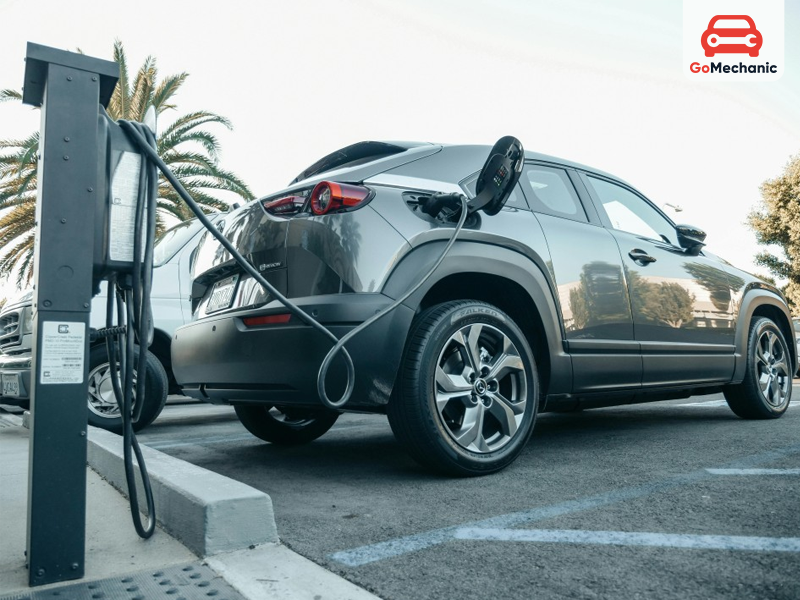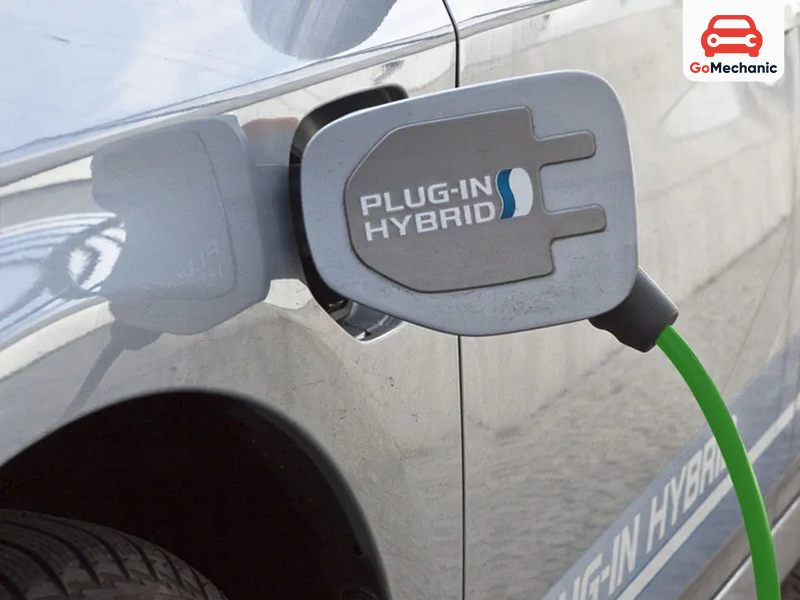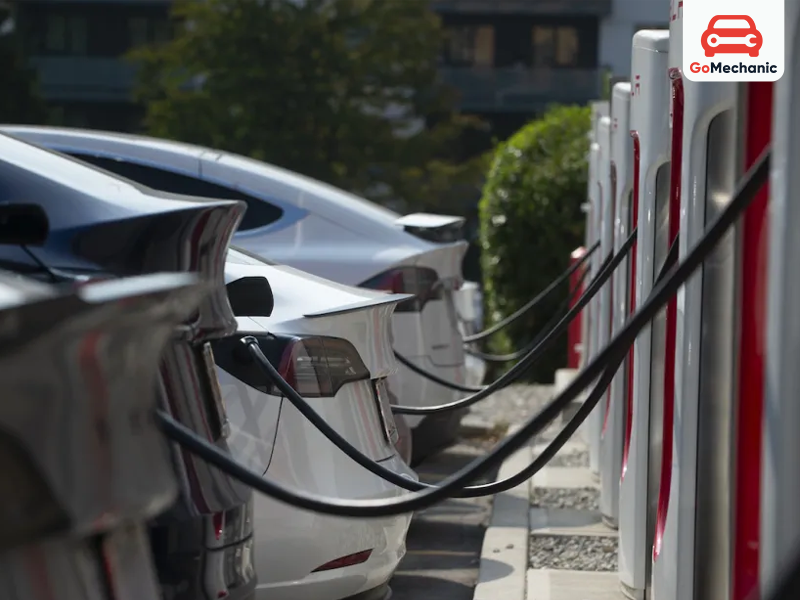Mild Hybrid
A mild hybrid car uses a small electric motor to aid the ICE (Internal Combustion Engine) engine. They merely supplement the ICE. This is not an electrical car by any means, but it will give an extra push to the engine when you need one for such things as when moving from a dead stop.
It also helps the engine to do other work such as running the air conditioner. Thus, it is quite useful. The power for the electric motor is gained from the ICE engine and also from the brakes through regenerative braking.
Mild Hybrid Cars in India:
- Maruti Suzuki Brezza
- Maruti Suzuki Ertiga
- Maruti Suzuki Ciaz
- Toyota Urban Cruiser Hyryder
Full Hybrid
Full hybrids possess both an ICE engine and a larger electric motor than mild hybrids. The electric motor is able to do much more work, including even allowing the car to move on just an electric motor for short distances, especially in the city. This is why full hybrids often achieve better fuel mileage in the city than on the highway, unlike regular cars.
Full Hybrid cars in India:
- Honda City
- Toyota Innova Hycross
- Toyota Camry
- Volvo XC90
Plug-in Hybrids
Plug-in hybrids are placed between regular hybrids and fully electric cars. They can recharge while running their engine just like any other hybrid. They can also use an electric outlet, just like a fully electric car. Thus, they cover farther distances on electric power than normal hybrids. Plug-in hybrid cars in India have yet to make a stride due to a lack of availability.
Also Read: Everything You Need to Know About Hybrid Car Servicing
Benefits of Hybrid Cars

1. Fuel Economy
Hybrid cars work on the principle of both an electric motor and an ICE engine. In hybrid cars, the normal engine is assisted in the acceleration process by the electric motor in such a manner that fuel consumption is ultimately reduced. Therefore, as compared to the traditional forms of engine models hybrid cars are much more efficient.
2. Emissions
Hybrid cars emit around half of the emissions of their counterparts, that is, traditionally fueled cars. The electric motor lowers the dependency on the ICE engine. In other words, the resulting emissions from toxic pollutants like carbon dioxide, nitrogen oxides, and particulate matter are dramatically lowered. Consequently, cleaner air is provided while helping to decrease the effects of global warming.
3. Affordability
General hybrid cars are less expensive than hybrid plug-in cars. One reason is that the technology is much less complicated and not nearly as taxing as a plug-in hybrid car. Even if it happens to cost more on the dealership floor than a standard petrol-fueled automobile, increased fuel efficiency generally tends to make up for the slight cost increase in the long term.
4. Charging
Hybrid cars do not require external charging. The battery is mostly recharged by the petrol or diesel engine and through regenerative braking that captures energy during deceleration and puts it into the battery.
Benefits of Plug-In Hybrid Cars

1. Electric Range
The battery in the case of a plug-in hybrid vehicle has to carry much more capacity than it would otherwise in a traditional hybrid. It gives such a vehicle the ability to go a great distance on electric power alone. It is particularly useful for relatively long trips that cannot be covered by traditional hybrids.
2. Fuel Freedom
Plug-in hybrid cars can be charged from a wall socket, which makes for a very convenient way to replenish the battery. This means more miles driven in electric-only mode and eradicates much fuel consumption over time. And less consumption can lead to more cost savings.
3. Green Mobility
The plug-in hybrid vehicles emit fewer emissions than the traditional hybrids. They do not produce any tailpipe emissions since they run mostly on electric power. This ensures that the air remains clean because the car produces minimal greenhouse gases.
4. Green Premium
Plug-in hybrid cars are usually pricier than the general hybrids. That is because you have to spend more on a large battery pack and charging infrastructure. But the potential for tremendous savings at the pump is massive. The government incentives can offset the additional cost of these plug-in hybrid cars.
Hybrid Dilemma

Ultimately, it is a choice between individual needs and driving patterns. If you mainly cover short distances, and there’s an accessible charging infrastructure in your area, the plug-in variant is advisable. But if the infrastructure is not accessible or unavailable and traditional fuel is needed for your specific needs then a normal hybrid car is the way to go.
Popular: Best 5 hybrid cars in India





